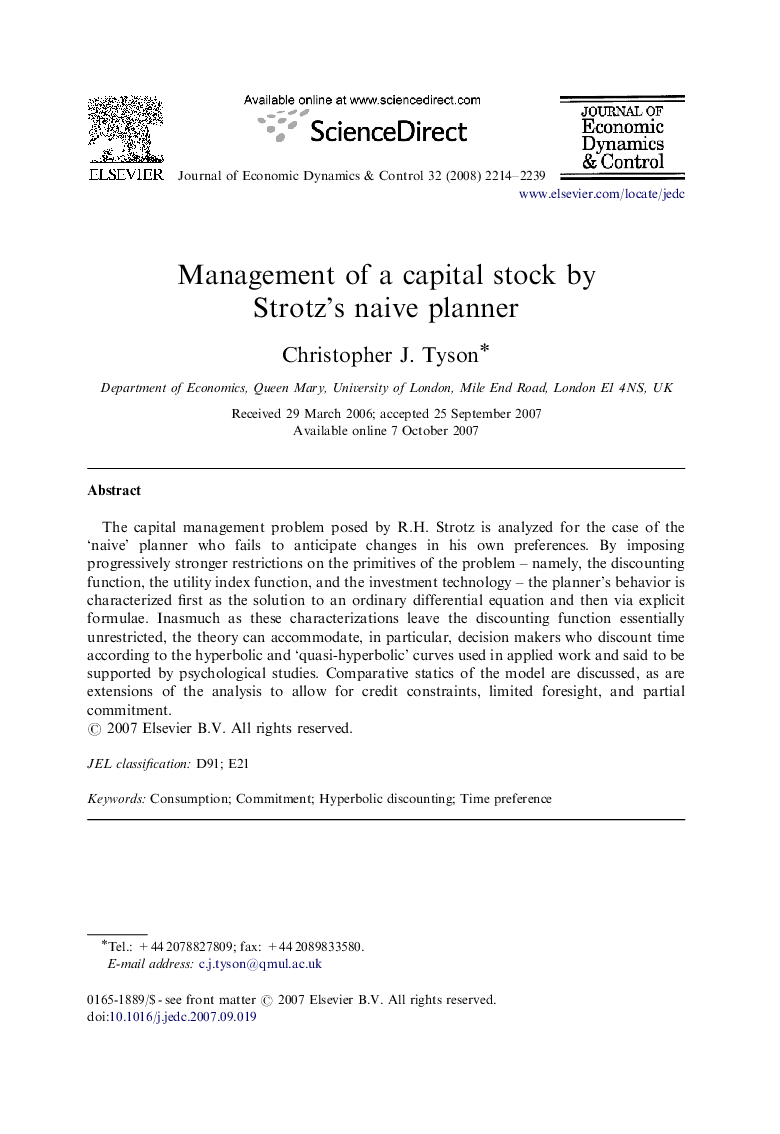| Article ID | Journal | Published Year | Pages | File Type |
|---|---|---|---|---|
| 5099401 | Journal of Economic Dynamics and Control | 2008 | 26 Pages |
Abstract
The capital management problem posed by R.H. Strotz is analyzed for the case of the 'naive' planner who fails to anticipate changes in his own preferences. By imposing progressively stronger restrictions on the primitives of the problem - namely, the discounting function, the utility index function, and the investment technology - the planner's behavior is characterized first as the solution to an ordinary differential equation and then via explicit formulae. Inasmuch as these characterizations leave the discounting function essentially unrestricted, the theory can accommodate, in particular, decision makers who discount time according to the hyperbolic and 'quasi-hyperbolic' curves used in applied work and said to be supported by psychological studies. Comparative statics of the model are discussed, as are extensions of the analysis to allow for credit constraints, limited foresight, and partial commitment.
Related Topics
Physical Sciences and Engineering
Mathematics
Control and Optimization
Authors
Christopher J. Tyson,
